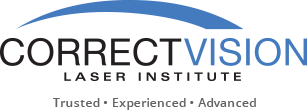How to Choose the Best Sunglasses for Your Eyes
 Sunglasses are essential for protecting your eyes from the sun’s harmful rays. Similar to skin damage caused by the sun, its ultraviolet rays can also damage your eye tissue, lens and cornea. It can also increase your risk for cataracts, macular degeneration and photokeratitis – a temporary, but painful condition that involves blisters on the surface of your cornea due to a corneal sun burn.
Sunglasses are essential for protecting your eyes from the sun’s harmful rays. Similar to skin damage caused by the sun, its ultraviolet rays can also damage your eye tissue, lens and cornea. It can also increase your risk for cataracts, macular degeneration and photokeratitis – a temporary, but painful condition that involves blisters on the surface of your cornea due to a corneal sun burn.
Wearing sunglasses play a pivotal role when it comes to protecting your eyes from the effects of the sun. Aside from style, we have provided you with eight tips on what to look for when choosing the best sunglasses for your eyes.
1. Daily Accessory
Sun damage is cumulative, so wearing sunglasses early in life can get you into the habit of protecting your eyes on a daily basis. Choose a pair of sunglasses that you will feel comfortable wearing year-round.
2. Complete UV Protection
Look for sunglasses with complete UVA/UVB protection against ultraviolet light. These types of sunglasses are usually marked with a sticker and protect up to 99 percent of UVA/UVB rays. The standards, set by the American National Standards Institute, should have up to UV 4000 protection, which means that the lenses should protect against rays with wavelengths up to 4000 nanometers.
3. The Right Tint
Make sure to choose sunglasses with the right tint. Ultraviolet coating is clear, so a darker lens doesn’t necessarily mean more protection. Instead, turn your attention toward gray, green and brown lenses, which are best at minimizing color distortion and a better choice for driving. Avoid rose or yellow tints that can make it difficult to distinguish changes in traffic lights, and affect your eyesight.
4. Polarized Lenses
Polarized lenses reduce glare from flat, smooth surfaces, and filter out light reflected off the water or pavement. For full outdoor functionality, consider polarized lenses with full UV protection.
5. Quality Lenses
To test the optical quality of the sunglasses, focus on a vertical edge or line that allows your eyes to sweep across the lens while moving your head back and forth. If there is any wiggle in the line, FDA guidelines note that the lenses may have an optical defect. Though price doesn’t equal UV protection, it’s important to choose sunglasses with quality lenses that don’t consist of any optical defects.
6. Bigger is Better
Look for sunglass styles that wraparound and block harmful rays from getting into your eyes from the side. If that’s not your style, sunglasses with large lenses and wide temples provide the next best protection.
7. Fit Matters
Frames should fit snugly on your nose and ears without pinching, rubbing or being too close to your brow area. If the sunglasses don’t fit correctly, light will enter the eyes, compromising any UV protection.
8. Covers the Skin Around the Eyes
The eyelids and eye tissue are made of a thin skin that is vulnerable to skin cancer and wrinkles. Wearing sunglasses that cover the skin around the eyes can provide UV protection and delay or slow down any damage to this area.
Most importantly, make sure to choose a pair that you want to wear and wear often. The benefits of sunglasses are only beneficial to you when in use!
CorrectVision Laser Institute is one of Florida’s most advanced vision correction practices with extensive experience in eye health. Our goal is to open your eyes to the world of great vision by offering unparalleled expertise and the most advanced technology available. Contact us today for a consultation with one of our South Florida eye specialists, located in Hollywood, Weston and Pembroke Pines!

